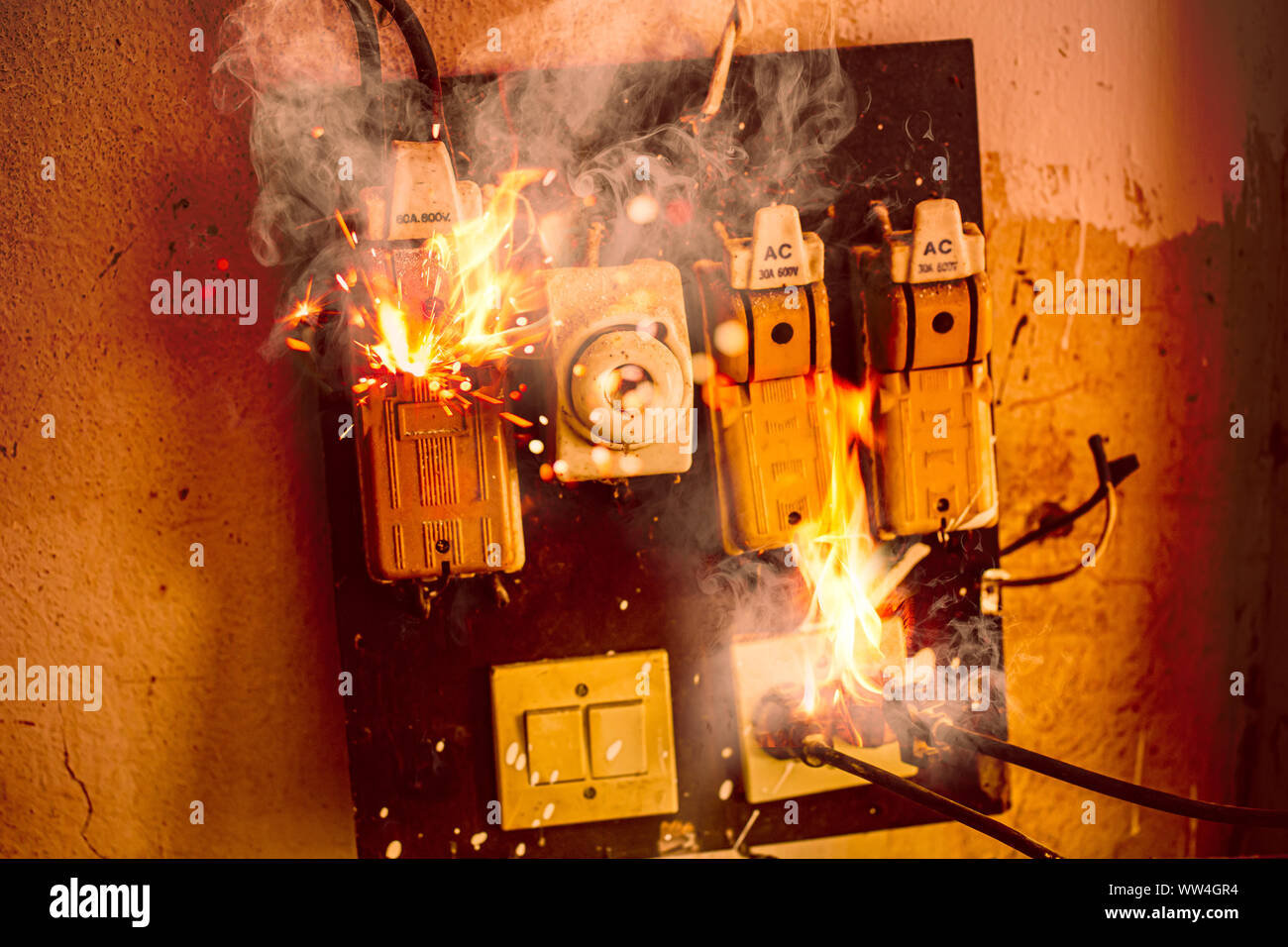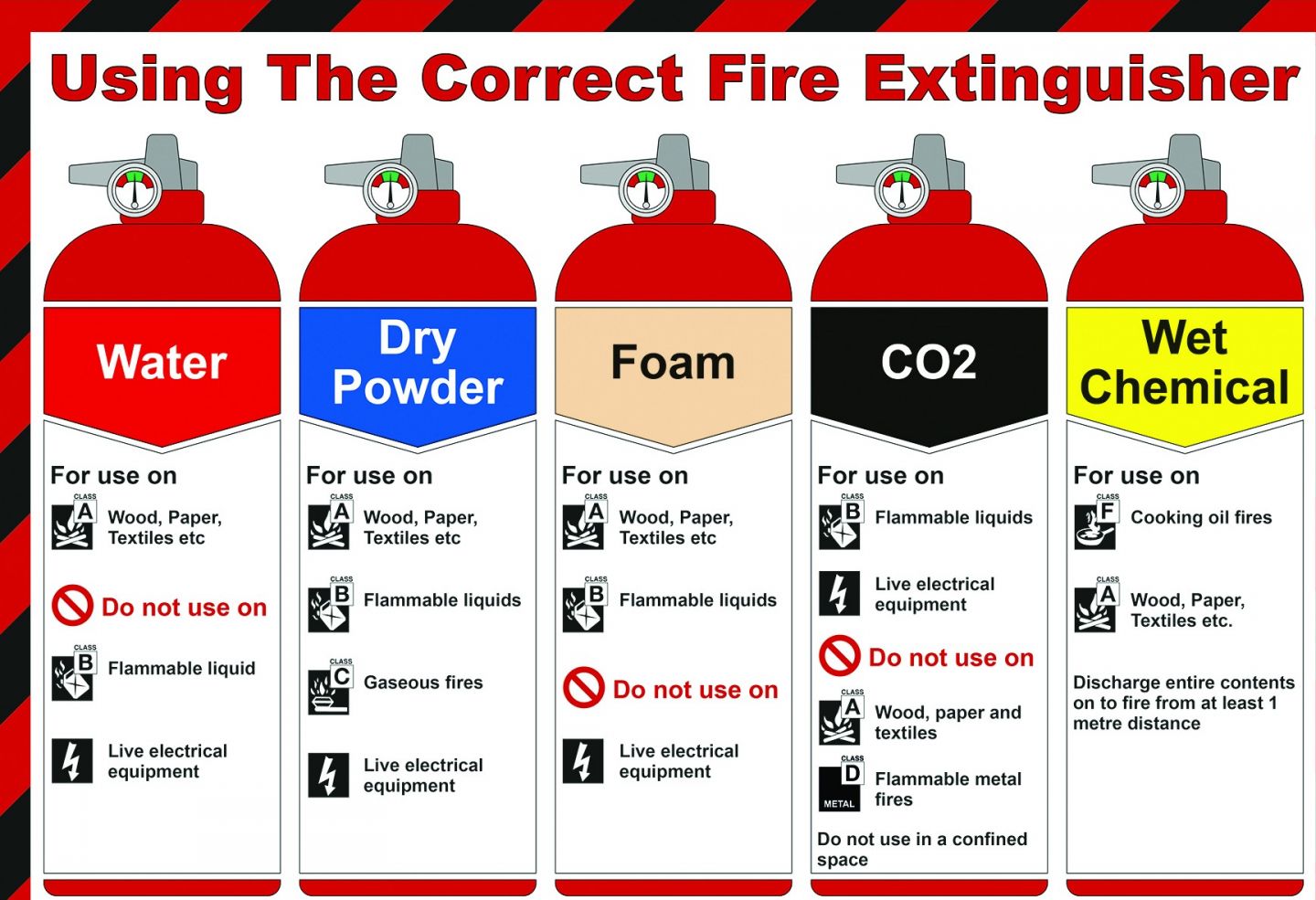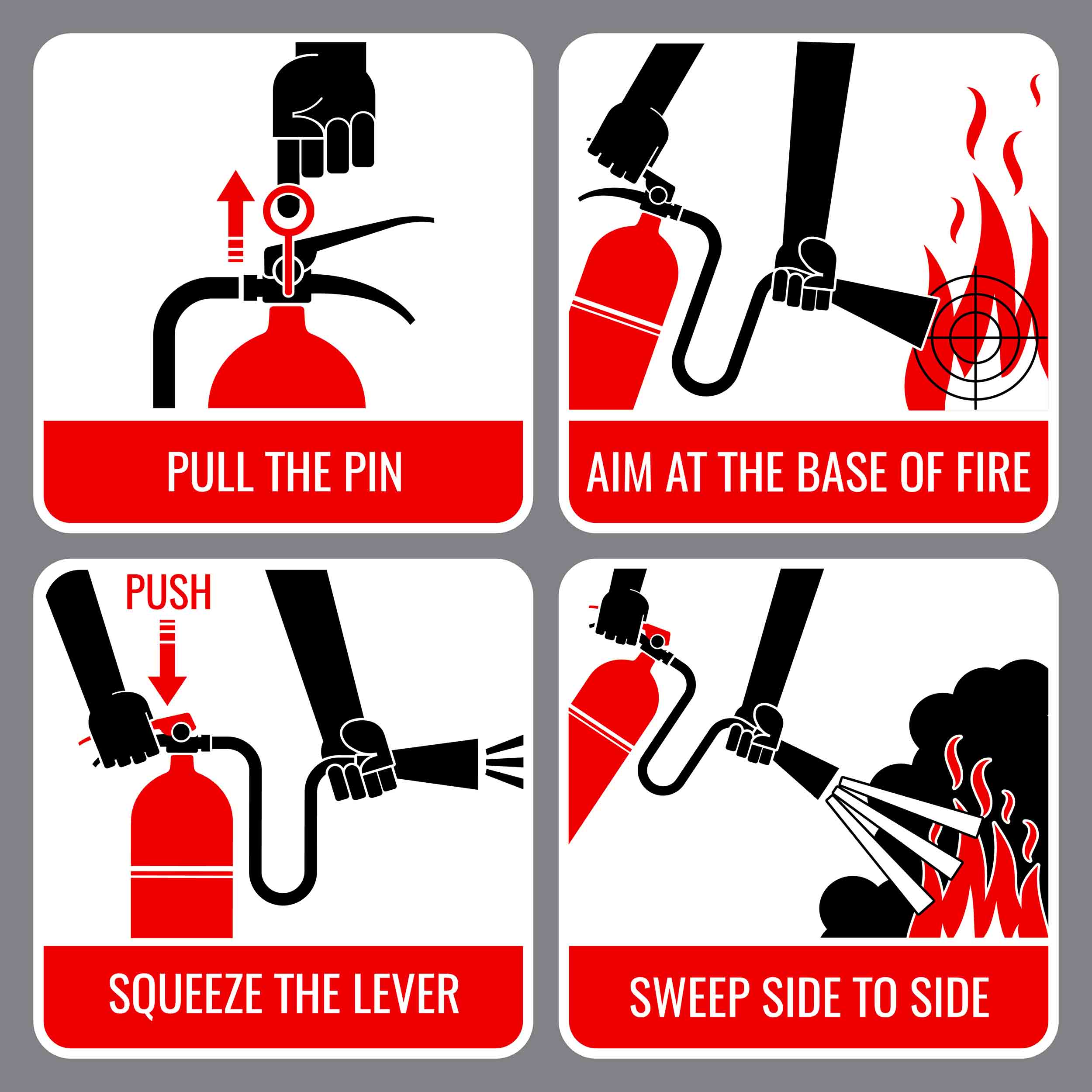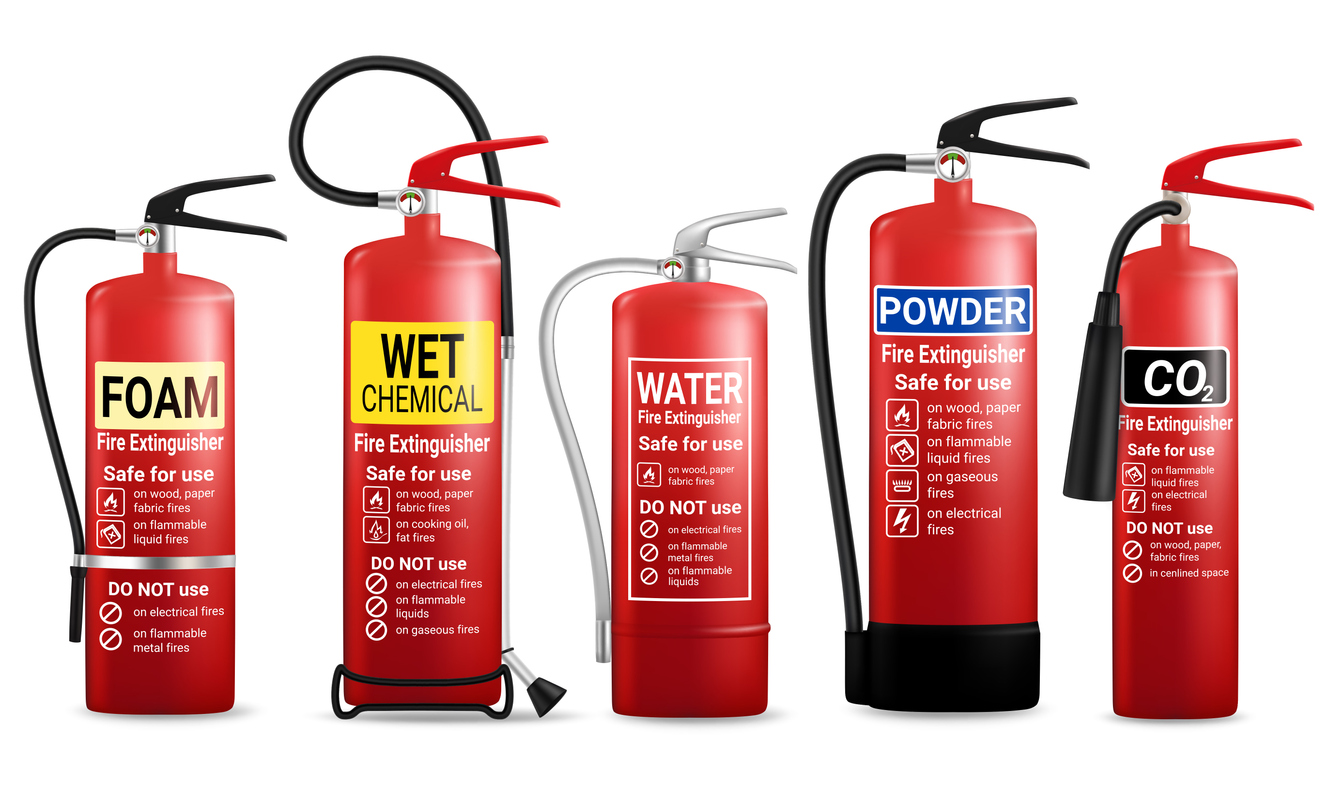Breathtaking Tips About Can We Use Fire Extinguisher On Short Circuit

Fire Extinguisher For Electrical Short Circuit At Pablo Joyce Blog
Short Circuits and Fire Extinguishers
1. Understanding the Electrical Inferno
Okay, so you've got a short circuit. Sparks are flying, maybe there's a distinct burning smell, and panic is threatening to set in. Your first instinct might be to grab the nearest fire extinguisher, and that's understandable! But before you unleash the foam, powder, or CO2, let's break down whether a fire extinguisher is actually the right tool for the job. After all, you wouldn't use a hammer to butter toast, right? (Unless you're feeling really adventurous, I guess.)
The key here is understanding what's actually causing the fire. A short circuit is essentially an unintended pathway for electrical current to flow, often bypassing the normal resistance in a circuit. This leads to a surge in current, which generates heat. If that heat becomes intense enough, it can ignite nearby flammable materials like insulation, wiring, or even dust. So, while the initial problem is electrical, the resulting problem might be a fire fueled by something else. Think of it as the electrical equivalent of a leaky pipe that eventually causes mold.
Different types of fire extinguishers are designed for different types of fires. Class A extinguishers are for ordinary combustibles like wood and paper. Class B extinguishers are for flammable liquids like gasoline and oil. Class C extinguishers are specifically designed for electrical fires. Using the wrong type can be ineffective at best and downright dangerous at worst. Imagine trying to put out a grease fire with water! It's a recipe for disaster, and a very slippery kitchen.
So, to recap: a short circuit isn't always a fire, but it can cause one. And the type of fire that results will determine the appropriate extinguisher. Keep this in mind because that next moment can be crucial for your safety and preventing your house becoming an impromptu bonfire.

Premium Vector How To Use Fire Extinguisher Infographic Poster
What Kind of Fire Extinguisher Do I Need for an Electrical Fire (Class C)?
2. Decoding the Fire Extinguisher Alphabet Soup
Alright, let's dive into the world of fire extinguisher classifications. When dealing with a short circuit that has ignited a fire, you need a Class C fire extinguisher. These extinguishers contain non-conductive extinguishing agents that won't conduct electricity back to you, saving you from becoming part of the circuit (which is definitely not a fun experience). Common extinguishing agents used in Class C extinguishers include carbon dioxide (CO2) and dry chemical powders.
CO2 extinguishers work by displacing oxygen, effectively suffocating the fire. They're clean, leaving no residue behind, which is a bonus. However, CO2 dissipates quickly, so you need to apply it directly to the base of the flames and be prepared for potential reignition. It's like telling a really persistent joke; sometimes you have to keep repeating it until it finally sinks in.
Dry chemical extinguishers, on the other hand, use a fine powder to interrupt the chemical reaction of the fire. They're effective on a wider range of fires than CO2, but they do leave a powdery residue that can be a pain to clean up. Think of it as the glitter of the fire extinguisher world — effective, but it gets everywhere.
Here's the important takeaway: always check the label on the fire extinguisher to ensure it's rated for Class C fires. Don't assume all extinguishers are created equal. Reading the label is not just about safety; it's also about making the right tool choices to prevent the fire from spreading into something more dangerous. Your safety depends on this!
When Not to Use a Fire Extinguisher on a Short Circuit
3. Knowing When to Back Away Slowly
Hold on a second! Before you become a fire-fighting hero, there are situations where using any fire extinguisher on a short circuit is a bad idea. The most crucial factor is whether the electricity is still flowing. If the circuit is live, using a water-based extinguisher (Class A) is a recipe for electrocution. Water conducts electricity, and you definitely don't want to become the path of least resistance. It's like swimming in a bathtub with a plugged-in toaster — just don't do it.
Even if you have a Class C extinguisher, if the fire is large or spreading rapidly, it's time to evacuate and call the fire department. Don't be a hero! Your safety is paramount. Trying to fight a raging electrical fire on your own is like trying to stop a runaway train with a garden hose — ultimately futile and potentially dangerous.
Another crucial point: if you're not comfortable using a fire extinguisher, or if you're unsure about the type of fire, don't risk it. Back away, call for help, and let the professionals handle it. It's better to be safe than sorry, and a small ego bruise is preferable to a trip to the emergency room or a burned-down house.
In summary, assess the situation carefully. If the electricity is on, the fire is large, or you're unsure about what to do, prioritize safety and call for professional help immediately. Its never a bad idea to call for professional help if a serious problem arises.

Fire Extinguisher Service Dundee Approved, 5 Star Rated
Preventing Short Circuits in the First Place
4. Avoiding the Spark of Disaster
Of course, the best way to deal with a short circuit is to prevent it from happening in the first place! Regular maintenance of your electrical system is key. This includes checking cords and plugs for damage, avoiding overloading circuits, and ensuring that all electrical work is done by a qualified electrician. Think of it as preventative medicine for your electrical system — a little care now can save you a lot of trouble (and potential fire damage) later.
Overloading circuits is a common cause of short circuits. Each circuit in your home is designed to handle a certain amount of electrical current. Plugging too many appliances into a single circuit can exceed that limit, causing the wires to overheat and potentially start a fire. Be mindful of what you're plugging in and avoid using extension cords as a permanent solution. Extension cords are meant to be temporary, not a permanent crutch for insufficient outlets.
Pay attention to warning signs. Flickering lights, burning smells, or outlets that feel warm to the touch can all indicate a problem with your electrical system. Don't ignore these signs! Have them checked out by an electrician as soon as possible. Ignoring these could put you and your loved ones at risk.
Finally, consider installing arc-fault circuit interrupters (AFCIs) in your home. AFCIs are designed to detect arc faults, which are a common cause of electrical fires. They can shut off the circuit before a fire starts, providing an extra layer of protection. It's like having a bodyguard for your electrical system, always watching for potential threats.

Types Of Fire Extinguishers Their Uses LW Safety Ltd Atelieryuwa.ciao.jp
FAQ
5. Frequently Asked Questions (and Hopefully, Answers!)
Still have questions swirling around in your head? Here are a few common queries about using fire extinguishers on short circuits:
6. Question
Answer: Even if you think you've turned off the power, there's always a risk that the circuit is still live. It's best to err on the side of caution and use a Class C fire extinguisher specifically designed for electrical fires. If in doubt, always assume the circuit is live.
7. Question
Answer: Fire extinguishers have a limited lifespan. Check the expiration date on the extinguisher and have it inspected by a professional regularly. An expired or improperly maintained fire extinguisher may not work when you need it most, which is not a risk you want to take.
8. Question
Answer: Your immediate priority should be safety. Evacuate the area, close the door behind you to contain the fire, and call 911 (or your local emergency number) immediately. Don't try to fight the fire yourself without the proper equipment and training. Getting out safely is the most important thing. Let the professionals handle it from there.
Hopefully, this has shed some light (pun intended!) on the topic of fire extinguishers and short circuits. Stay safe, be prepared, and don't be afraid to call for help when you need it!

